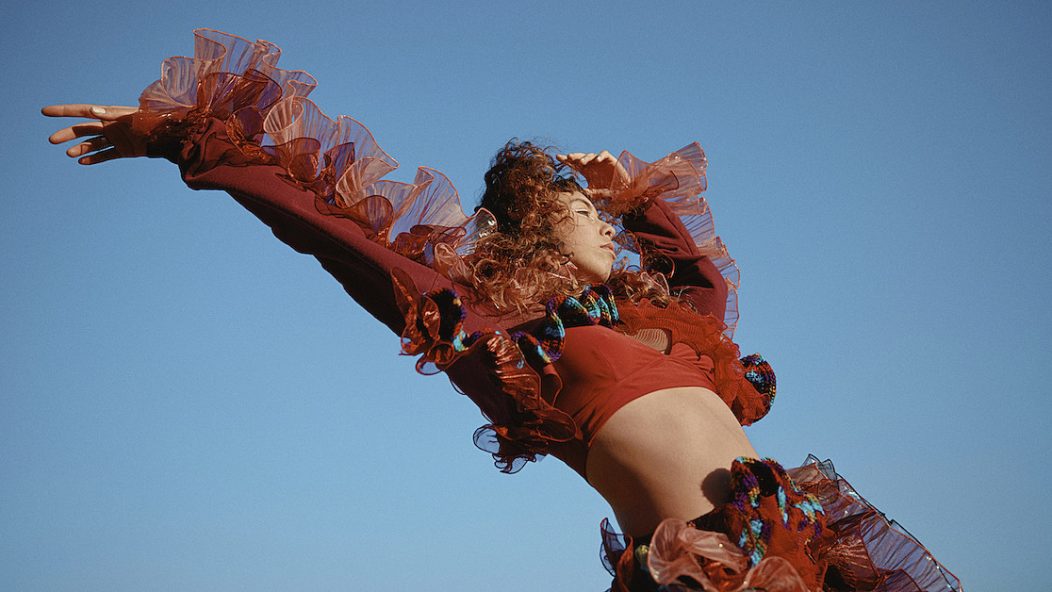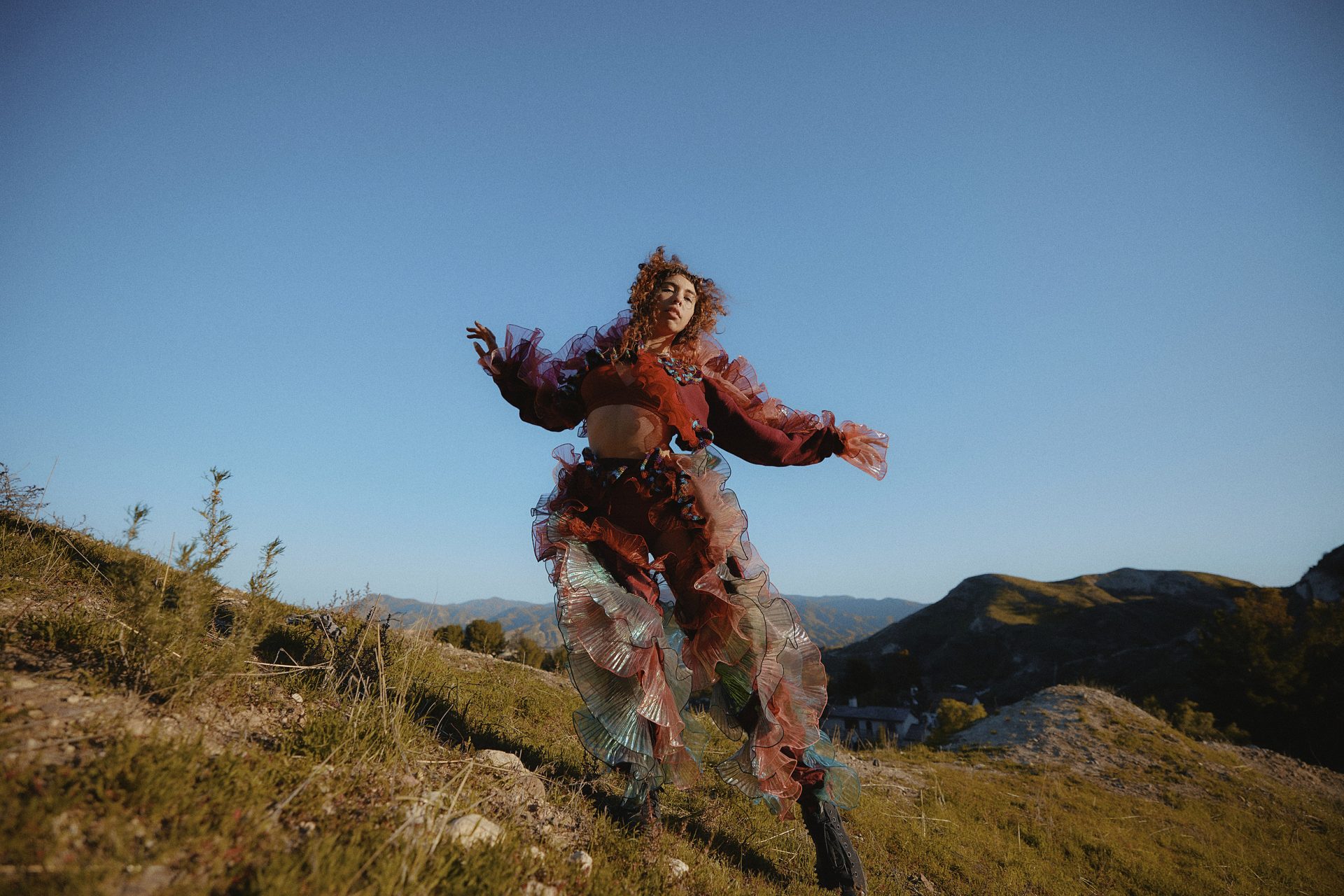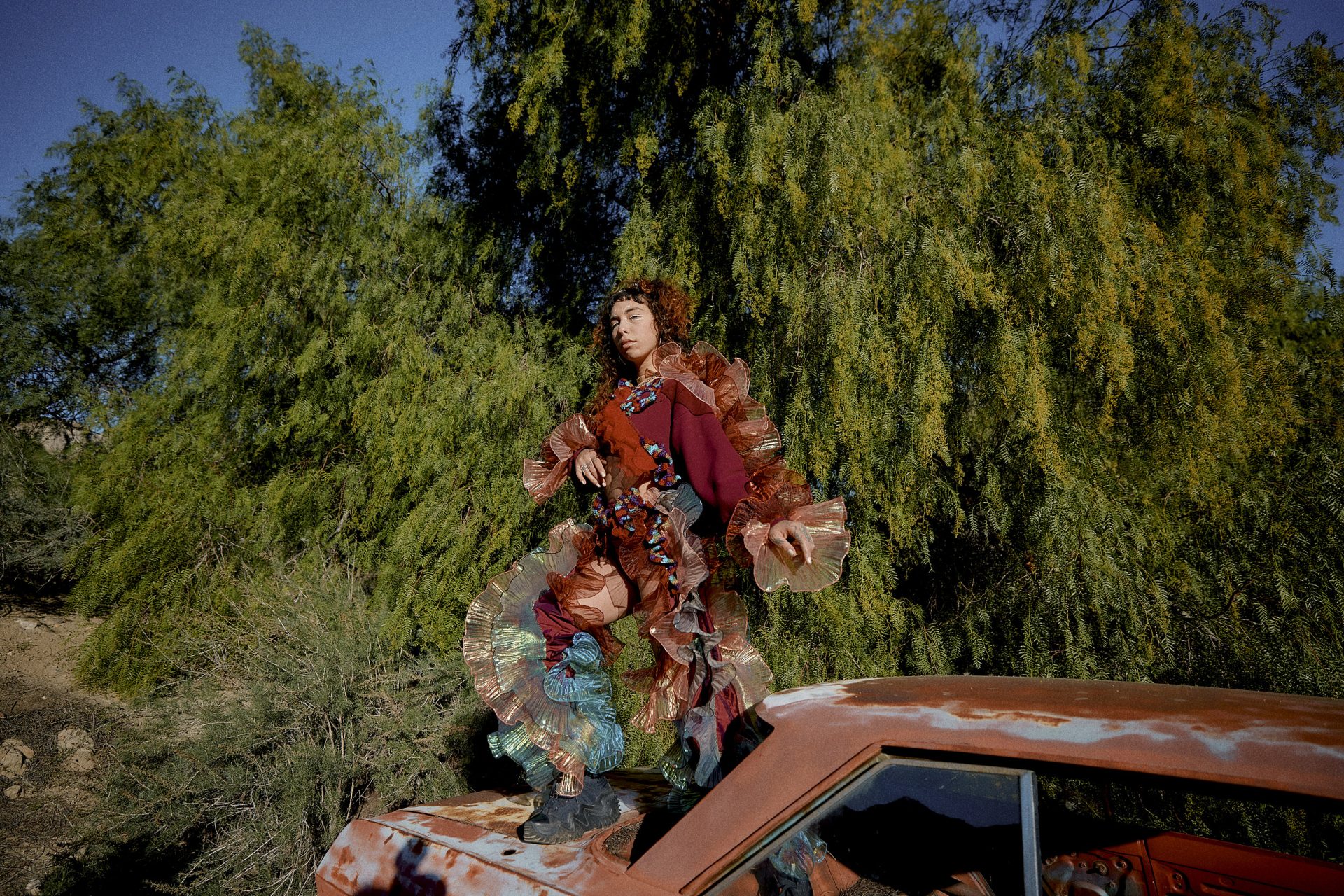
How Indigo De Souza reconnected with nature to make her stunning, soul-searching album All of This Will End
There’s a place in Asheville called the Linville Gorge. Known as the “Grand Canyon of North Carolina,” the nearly 12,000 acres of the Pisgah National Forest have a terrain so rough that logging and development have never been able to touch it. The Linville River, though, is one of the sole things that controls its fate — years of sedimentation shaping its shoreline and waterfalls.
It’s what Indigo De Souza cites as one of her favorite places from her childhood. Nature was significant to the indie-rock artist then, just as much as music was. Given free rein in her small Southern hometown, she often explored the rivers that passed through the area when she wasn’t practicing chords or journaling. Still today, she often feels most rested in a river’s bed.
Even now, De Souza resides adjacent to a river in an old church and frequently visits a nearby creek with her friends and dog. “It has been a really important space for us to create community and a connection to nature,” De Souza says of the creek. “What I love about water is how constant it is, and the fact that it slowly wears away at the rocks — but it takes so long for any of that to happen that you don’t see it. The rocks are steady, and they’ve been there for years and years. It feels so special.”
Read more: LGBTQ+ artists in Nashville are carrying on the city’s folk tradition now more than ever
The 25-year-old singer-songwriter, who’s made waves for her garage rock featuring arresting lyricism, didn’t always feel that way, though. Like the rush of a current, her tranquil, inquisitive feelings about the outdoors weathered during her teenage years as she struggled with mental health and found herself surrounded by the wrong people. But more recently, she emerged from her cocoon to experience a metamorphosis that helped her see nature and life through a new lens. She even developed a whole ecosystem surrounding herself, which in turn informed her most stunning record to date, All of This Will End (out now on Saddle Creek).

[Photo by Angela Choe]
After being friends with a group of fellow artists who romanticized depression and ushered her into a “dark place” mentally, she met an entirely new community. She had been following a neighbor’s efforts of building an earth home online, and eventually, they invited her out to visit it.
Soon after, they were kayaking and sitting around campfires together. “It was the first time really sinking into nature in my adult life,” she says. Finally, she felt embraced in a way she hadn’t in years. “I shot out of that during the pandemic, met all new friends and became a whole new self,” De Souza says.
The amalgamation of that experience is All of This Will End, a follow-up to her 2021 breakout album Any Shape You Take, which is centered around the idea that life is fleeting but is by no means morbid. Rather, the rising indie-rock star’s grunge-pop is full of soul-searching that sees all of life’s joys, melancholies and pains as part of an at times terrifying but ultimately beautiful piece in nature’s cycle. She sings, “I don’t have answers/No one does/I’ve been finding comfort in that” on the title track, and you believe her.
“I stopped grabbing so hard for things and started to settle into the places and the relationships and nature that I love a little more. I stopped looking for some grand experience and just love the one that I have every day,” she says. While she maintains that “the weight of mortality doesn’t ever actually stop feeling heavy,” these sentiments surface on All of This Will End profoundly as if they could be a balm for any listener in search of healing.
They’re realizations De Souza had long been searching for herself, which came to her gradually, and then all at once. “It feels like it’s not my first time on the planet,” she says. “I’ve felt that way since I was a child, and I know that from reading journals from when I was little. I’ve been looking to accept [how fleeting life is] and knew that I needed to accept it, but didn’t really know how. And then eventually I just did.”
She tackles this sentiment with opener “Time Back,” where she sings, “I feel like I’m leaving myself behind/And I’m so tired of crying/I wanna get back up again.” She goes on to say that she wants to “begin again,” after condemning those who’ve hurt her. You trust that she’s able to do so throughout the album’s dichotomy of lightness (“The Water” and its exploration of holding close even the mundane) and darkness (“Always,” in which she confronts her father’s absence over thrashing guitars), and even the acceptance that sadness is inevitable (“Parking Lot”).

[Photo by Angella Choe]
While De Souza’s first two records encompassed her “turbulent” teenhood, she found that “it was such a different experience making this album because I actually felt incredibly stable and supported, and more in my body when I was making it.”
Part of that stability led to her reflecting on her childhood more than ever, as opposed to love’s tumultuous and debilitating qualities, as much of her past work has done. It was something she found incredibly vulnerable yet liberating.
Now, she’s effectively offering the thing to her inner child that she had been searching for — a life committed to art and avenues to release her pain. Music was, after all, her one safe space to “slip away” to while growing up. “I wrote [journal entries as a child addressed to] ‘A Lot Older Indigo.’ I would write things like, ‘I’m so confused and lost and don’t understand why I’m alive,’ but then there would also be parts where I was like, ‘All I want is a community and some land and to have enough means to take care of people that I love.’ There were always these wishes that I had that I feel like I have reached, and I’m also closer and closer to all the time.”
She’s finally found the community she’s longed for. Her mother, for instance, painted her album art for the third time and helped to design her costumes for biggest music videos to date, which continue to expound on her organic, somewhat mystic artistic vision. The way she thinks of her relationships even feel akin to the natural world she’s come to immerse herself in.
De Souza returns to the comforting nature of water. “That’s what I try to be for my friends — this constant thing that is really solid and doesn’t falter, doesn’t feel conditional. I allow things to pass us by, and we create a safe space to process those things that are passing through.” And that’s what De Souza wants to be to you.










